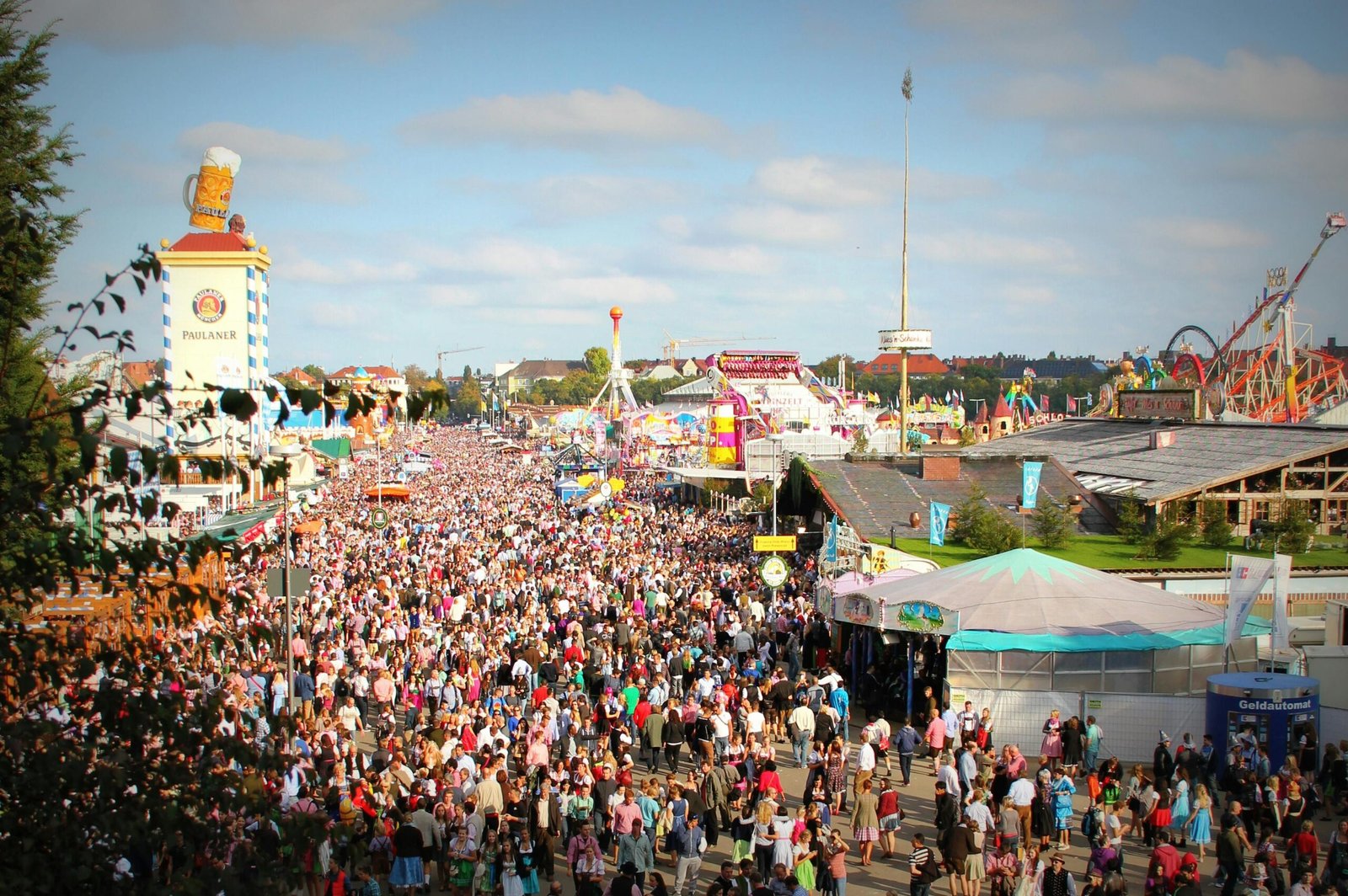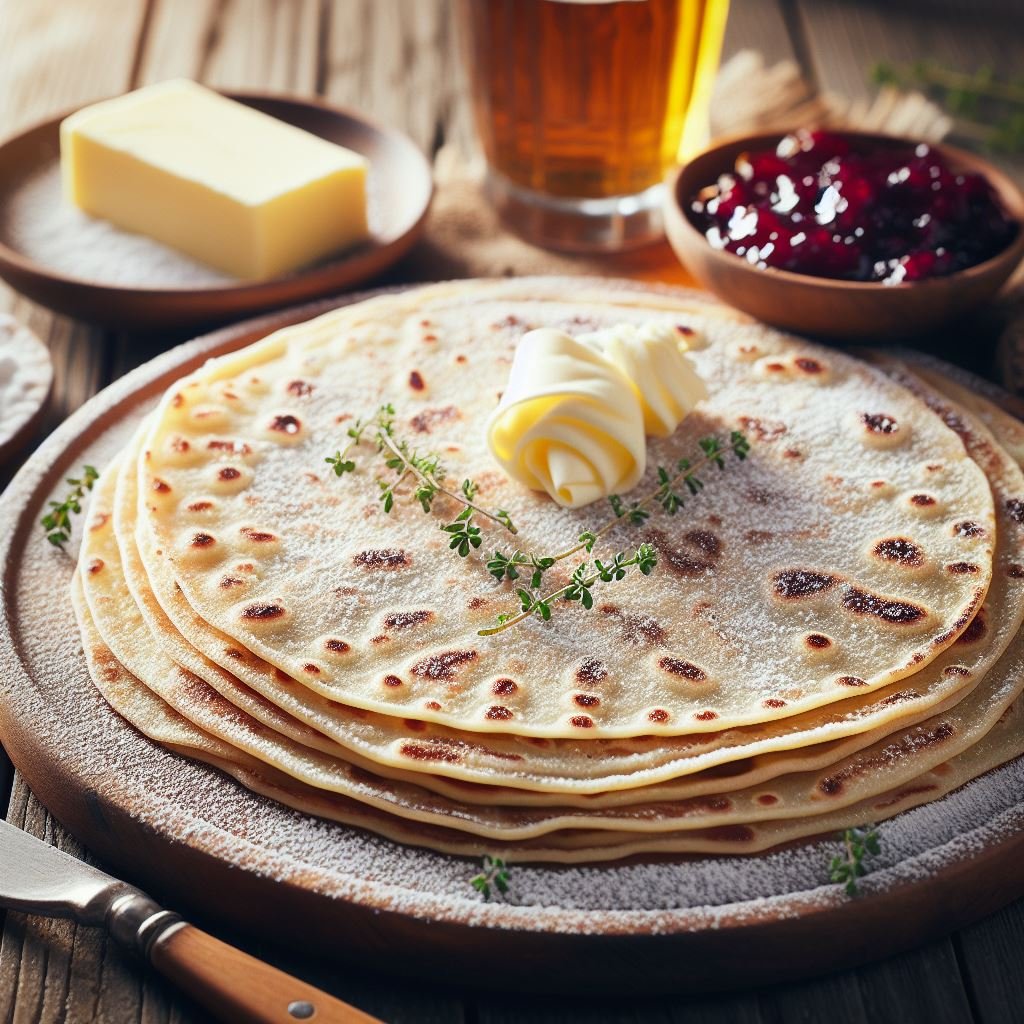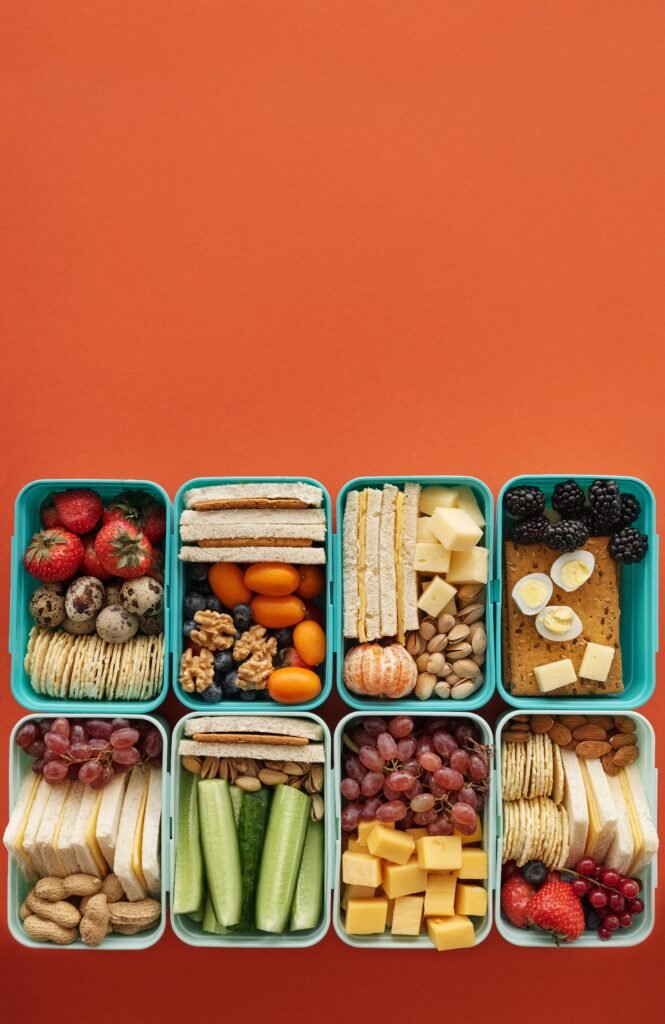Oktoberfest has grown into the world’s largest Volksfest, attracting millions of visitors from around the globe each year.
“Volksfest” is a German term that means “people’s festival” or “folk festival” in English.
This is characterized by a festive atmosphere with a wide range of activities.
There are other Volksfests held throughout the year across Germany and neighboring countries, each with their own unique attractions and traditions.
The most famous Volksfest is Oktoberfest, held annually in Munich, Bavaria, Germany.
This German event originally started with a focus on horse races at an agricultural show.
 Origin of Oktoberfest
Origin of Oktoberfest
Oktoberfest traces its roots back to the wedding celebration of Crown Prince Ludwig and Princess Therese of Saxony-Hildburghausen in Munich, Germany, on October 12, 1810.
The festivities included horse races, parades, and plenty of beer.
Originally conceived as a wedding celebration, Oktoberfest has evolved into the world’s largest beer festival and funfair, attracting millions of visitors from around the globe each year.
The festival has become synonymous with Bavarian culture, featuring traditional Bavarian music, dances, and attire.
Oktoberfest continues to honor its origins while embracing modern elements to keep the event vibrant and appealing to a diverse audience.
Traditional Oktoberfest Activities
Traditional Oktoberfest activities include fun-filled carnival rides, colorful parades, and lively folk dances.
Visitors from all over the world can enjoy traditional German games like stein-holding contests and barrel races.
Oktoberfest grounds are adorned with beautifully decorated beer tents where attendees can socialize, sing along to live music and indulge in delicious German cuisine.
Another prominent activity at Oktoberfest is the tapping of the first beer barrel by the Mayor of Munich, signaling the official start of the festival.
This ceremonial event is eagerly anticipated each year and marks the beginning of weeks of merry celebrations.
Alongside the beer tapping, attendees can witness traditional Bavarian costume parades showcasing elaborate dirndls and lederhosen, adding to the festive atmosphere of Oktoberfest.
Popular Beers Served at Oktoberfest
 One thing that makes Oktoberfest a beloved celebration is the wide array of beers served at the festival.
One thing that makes Oktoberfest a beloved celebration is the wide array of beers served at the festival.
Known for its traditional German brews, Oktoberfest offers attendees the chance to indulge in some of the country’s most iconic beer selections. From crisp lagers to rich ales, there is a beer to suit every palate at Oktoberfest.
From crisp lagers to rich ales, there is a beer to suit every palate at Oktoberfest.
Other international breweries also showcase their offerings at Oktoberfest.
This diverse selection allows attendees to sample a variety of beers from different regions and flavors, adding to the overall festive atmosphere of the event.
Food at Oktoberfest
The culinary delights at Oktoberfest are a crucial element of the festival’s charm and appeal.
Traditional Bavarian cuisine takes center stage, with mouthwatering dishes like pretzels, sausages, schnitzels, and roast chicken dominating the menus.
 These hearty and flavorful foods are perfect accompaniments to the rich and robust beers that flow freely throughout the event.
These hearty and flavorful foods are perfect accompaniments to the rich and robust beers that flow freely throughout the event.
Visitors to Oktoberfest can indulge in sweet treats such as apple strudel, gingerbread hearts, and warm roasted almonds.
These desserts provide a perfect balance to the savory main dishes and offer a delightful way to round off a satisfying meal.
Oktoberfest Fashion
 The traditional attire worn at Oktoberfest is a significant aspect of the festival, adding to the vibrant and festive atmosphere.
The traditional attire worn at Oktoberfest is a significant aspect of the festival, adding to the vibrant and festive atmosphere.
Men typically don the iconic Lederhosen, a pair of leather breeches often accompanied by a plaid shirt, wool socks, and Haferl shoes.
 The Dirndl can vary in style, with different lengths and embellishments to suit individual preferences.
The Dirndl can vary in style, with different lengths and embellishments to suit individual preferences.Music and Entertainment at Oktoberfest
At the heart of Oktoberfest lies a rich tapestry of music and entertainment that adds a vibrant layer to the festive atmosphere.
Visitors are treated to traditional Bavarian tunes, with lively polkas and folk songs filling the air.
Each tent at the festival features its own band, ensuring that no matter where you find yourself, toe-tapping melodies beckon you to join the merrymaking.
In addition to the musical delights, Oktoberfest boasts entertainment options to keep visitors of all ages engaged.
From colorful parades and folk dances to thrilling amusement rides, there is something to captivate everyone’s interest.
The festival grounds buzz with energy as attendees immerse themselves in the lively performances and activities.
Attendance
Each year, millions of people from around the world flock to Munich to partake in the festivities of Oktoberfest.
 The event attracts visitors of all ages, backgrounds, and nationalities, creating a vibrant and diverse atmosphere.
The event attracts visitors of all ages, backgrounds, and nationalities, creating a vibrant and diverse atmosphere.
In terms of statistics, Oktoberfest is a monumental event that generates staggering numbers.
It is estimated that over six million liters of beer are consumed during the festival, highlighting the jubilant and exuberant nature of the celebration.
Additionally, the sheer size of the crowds is impressive, with millions of attendees reveling in the traditional music, food, and activities that define Oktoberfest.
Impact of Oktoberfest on Local Economy
The annual Oktoberfest celebration in Munich has a significant economic impact on the local community.
The festival attracts millions of visitors each year; boosting tourism revenue for the city.
 Hotels, restaurants, and various businesses benefit from the increased flow of tourists during the weeks-long event.
Hotels, restaurants, and various businesses benefit from the increased flow of tourists during the weeks-long event.
Additionally, the demand for traditional Bavarian food and beverages spikes, leading to a rise in sales for local vendors and producers.
Furthermore, Oktoberfest creates numerous job opportunities for the local population.
With the surge in visitors, there is an increased need for workers in hospitality, transportation, and event management.
As a result, Oktoberfest plays a vital role in sustaining the local economy and supporting livelihoods in the community.
Future of Oktoberfest
As Oktoberfest continues to evolve and adapt to changing times, it faces both challenges and opportunities.
With increasing globalization and shifting consumer preferences, organizers are exploring ways to keep the festival relevant and appealing to a diverse audience.
Embracing sustainable practices and incorporating modern technology are crucial aspects that are being considered to ensure the longevity of Oktoberfest.
The focus is on preserving the rich traditions while also innovating to attract new generations of attendees.
Furthermore, as the world becomes more interconnected, there is a growing trend of Oktoberfest-inspired celebrations popping up in different parts of the globe.
This presents an exciting prospect for the future of Oktoberfest as it could become a truly global phenomenon, transcending its origins in Munich, Germany.




